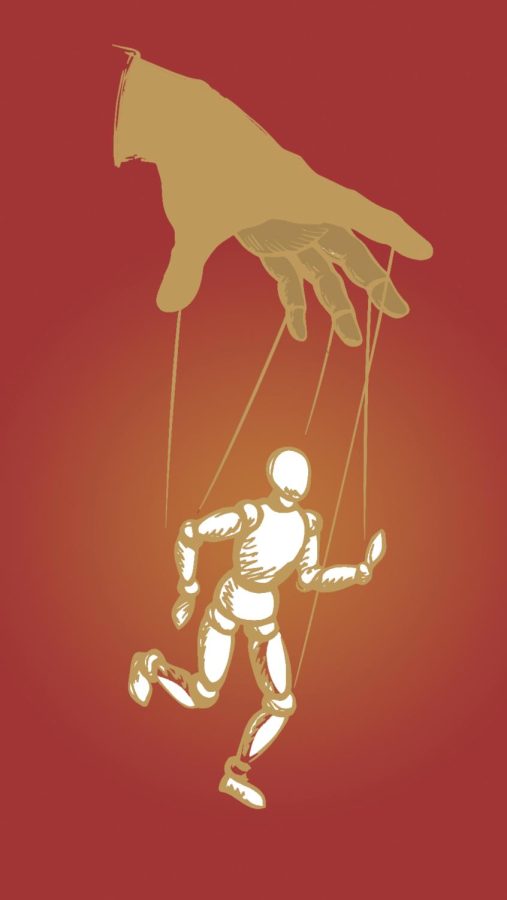‘Gaslighting’ is not just a buzzword
Michael Buckner / The Advance-Titan– Gaslighting is a form of psychological manipulation used to make a victim question their own reality. The term has become popularized when discussing different types of relationships.
December 1, 2022
Chances are, you’ve likely heard the unique term “gaslighting” tossed around in the past few years. Similarly, chances are you probably didn’t know what it means until recently.
Gaslighting — defined as “the act or practice of grossly misleading someone especially for one’s advantage”— was crowned the word of the year by Merriam-Webster Dictionary.
The commonly misused term saw a 1,740% increase in searches on the online dictionary this year, but the numbers aren’t the only reason it deserves the No.1 spot.
Although gaslighting has existed for ages, recognizing the manipulation tactic in practice is relatively new for most people. For many people, the term has been thrown around so frequently in the past years that it has almost become a sort of buzzword.
Does a mere buzzword really deserve to be declared word of the year?
The word gaslighting does hold extreme merit; people need to educate themselves about gaslighting to ensure they are not victims of manipulation or are the manipulators. Especially in today’s media and political climate, preparing yourself against deceit is crucial.
Last year, CNN reporter Chris Cillizza wrote a column titled “Donald Trump is gaslighting us on the January 6 riot,” in which Cillizza claimed Trump tried to reframe the darkness of Jan. 6 in a way that benefitted his reputation. This was after Trump downplayed the Jan. 6 riot and that the people being persecuted were done so “unfairly.”
Gaslighting can happen between any type of relationship — romantic, platonic and even between political leaders or media voices and the public. Especially in the tumultuous era of “fake news,” discerning what is real and what is not real is already a burden on the public.
Recognizing when a well-known person or publication is trying to make their audience question their sanity for the person or publication’s benefit can ease the process of becoming media literate.
Before that column, legendary country-pop trio The Chicks released their comeback album “Gaslighter” (2020) to illustrate how gaslighting looks in different types of relationships. A recurring theme of the album focuses specifically on how women are traditionally more often manipulated than men and that women are often accused of being overly sensitive — textbook gaslighting.
An all-female group, The Chicks are no strangers to scrutiny and hate from the public, which bullied them into silence for years. The album explores the idea that although women’s concerns are often chalked up to being overly-sensitive, recognizing the signs of gaslighting can be empowering.
Of course, we can’t discuss the 2022 Word of the Year without mentioning the thousands of people coming forth with their medical manipulating horror stories. Earlier this year, viral TikTok by user @lyndsijohnson prompted hundreds of people to share their medical gaslighting experiences. Most of these include doctors belittling patients’ symptoms and dismissing them when there is a serious underlying issue.
By raising awareness of just how frequently patients are gaslit in the medical field, people are becoming more confident in speaking up about their health concerns. Some are even taking it even further by demanding written proof that a doctor refused to treat a patient or address their symptoms.
Maybe this seems a bit “let me speak to your manager”-esque, but it’s really a way to build a case for yourself. After all, it is your health.
Gaslighting isn’t just a trendy word used by people looking to play the victim; people who reduce the word to this are likely gaslighters themselves.
While the saturation of the word can begin to diminish its meaning over time, people need to understand the toll gaslighting can have on people’s mental health and perception of the world. By educating themselves, people can protect themselves against this deception and abuse.
Apparently, 2022 was just the year we’ve decided to do this — so yes, gaslighting deserved the title of Word of the Year.














